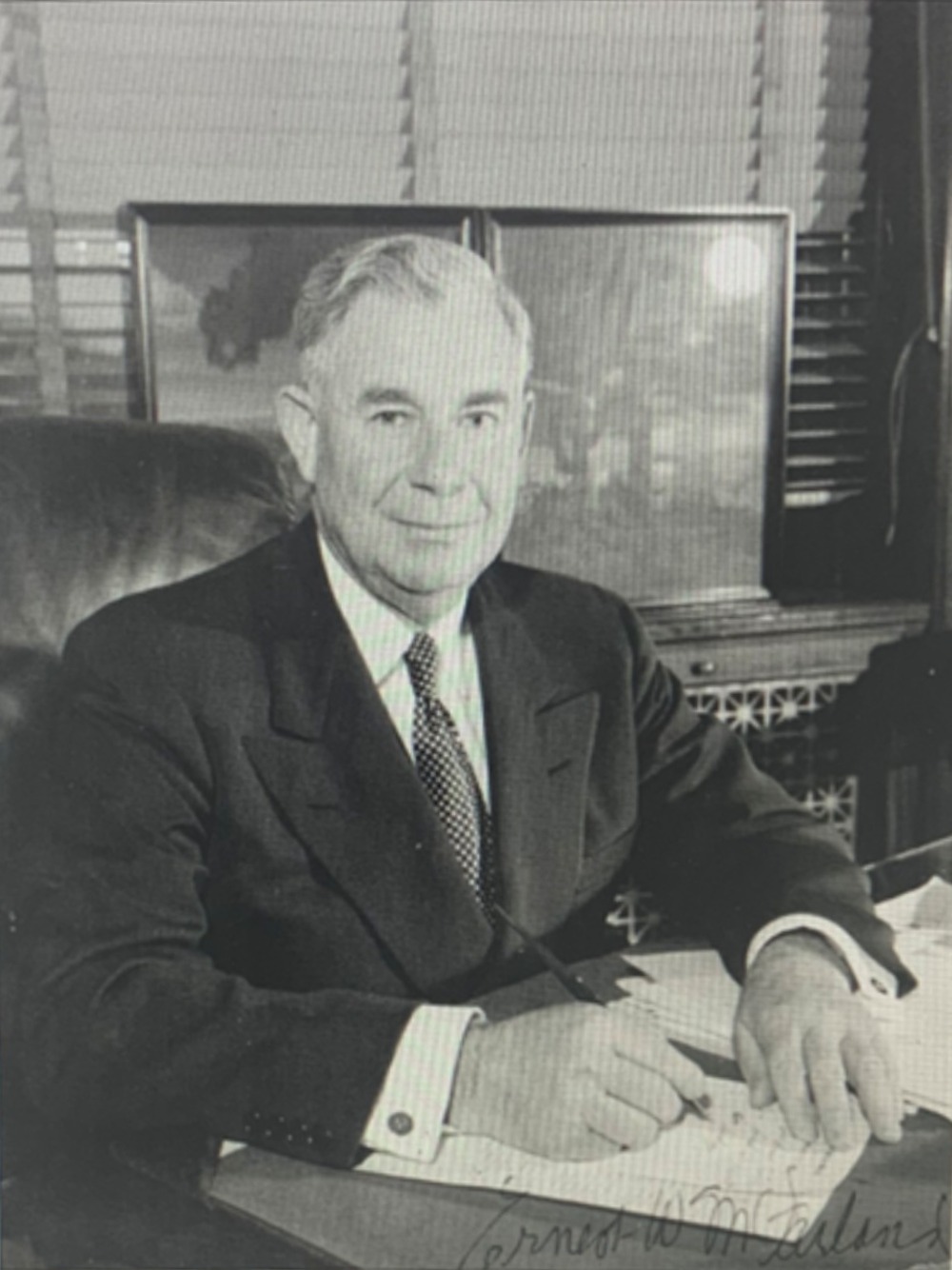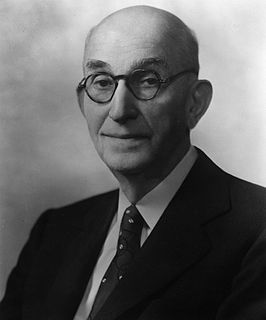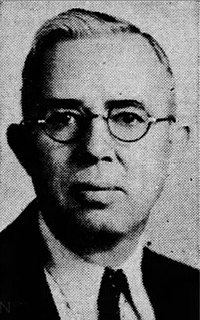
The United States Senate elections, 1978 in the middle of Democratic President Jimmy Carter's term. Thirteen seats changed hands between parties. The Democrats at first lost a net of two seats to the Republicans, and then one more in a special election. Democrats nevertheless retained a 58-41 majority.

The 1934 United States Senate elections in Arizona took place on November 3, 1934. Incumbent Democratic U.S. Senator Henry F. Ashurst ran for reelection to a fifth term, defeating Republican nominee Joseph Edward Thompson in the general election by a wide margin.

The 1940 United States Senate elections in Arizona took place on November 5, 1940. Incumbent Democratic U.S. Senator Henry F. Ashurst ran for reelection to a sixth term, but was defeated in the Democratic primary to challenger Ernest McFarland.

The 1964 United States Senate election in Arizona took place on November 3, 1964. Incumbent Republican U.S. Senator Barry Goldwater decided not to run for reelection to a third term, instead running for President of the United States as the Republican Party nominee against Lyndon B. Johnson. Governor of Arizona Paul Fannin ran unopposed in the Republican primary, and defeated Democratic nominee Roy Elson, who was a staff member for U.S. Senator Carl Hayden until Hayden's retirement in 1969.

The 1914 United States Senate elections in Arizona took place on November 3, 1914. Incumbent Democratic U.S. Senator Marcus A. Smith ran for reelection to a second term, defeating Republican State Senator Don Lorenzo Hubbell in the general election by a wide margin. Several third party candidates also ran in the election, notably former Prohibition Party Presidential nominee Eugene W. Chafin, as well as Bert Davis of the Socialist Party and J. Bernard Nelson of the Progressive Party.

The 1920 United States Senate elections in Arizona took place on November 2, 1920. Incumbent Democratic U.S. Senator Marcus A. Smith ran for reelection to a third term, but was defeated by former Delegate to the U.S. House of Representatives from the Arizona Territory Ralph H. Cameron in the general election. Cameron would become the first Republican elected to the office of U.S. Senator from Arizona since the state joined the union in 1912. The same year, Republican Governor Thomas Edward Campbell was reelected to a second term.

The 1950 United States Senate elections in Arizona took place on November 7, 1950. Incumbent Democratic U.S. Senator Carl Hayden ran for reelection to a fifth term, defeating Republican nominee Bruce Brockett in the general election. Brockett was formerly the Republican nominee for governor in both 1946 and 1948.

The 1968 United States Senate election in Arizona took place on November 5, 1968. Incumbent Democratic U.S. Senator Carl Hayden did not run for reelection to an eighth term, with his longtime staff member Roy Elson running as the Democratic Party nominee to replace him. Elson was defeated by a wide margin, however, by former U.S. Senator and 1964 Republican presidential nominee Barry Goldwater. Prior to Goldwater's election, the seat had been held for decades by the Democratic Party under Carl Hayden, and has thus far remained in Republican Party control since.

The 1962 United States Senate election in Arizona took place on November 6, 1962. Incumbent Democratic U.S. Senator Carl Hayden ran for reelection to a seventh term, defeating Republican nominee State Senator Evan Mecham in the general election. Mecham became Governor of Arizona more than two decades later, and was subsequently impeached from office.

The 1924 Arizona gubernatorial election took place on November 4, 1924. Despite being a Republican year nationally, President Coolidge's election in Arizona was rather close. He only took Arizona with 40% of the vote against Davis' 35% and La Follette's 23%. The closest Arizona gubernatorial election since 1916, Hunt's lead in votes would continue to decline.

The 1938 Arizona gubernatorial election took place on November 8, 1938. Incumbent Governor Rawghlie Clement Stanford declined to run for reelection, with pharmacy and cattle ranch owner Robert Taylor Jones winning the Democratic nomination to succeed Stanford.

The 1940 Arizona gubernatorial election took place on November 5, 1940. Incumbent Governor Robert Taylor Jones ran for reelection but was defeated in the Democratic primary by former Secretary of State Sidney Preston Osborn, whom Jones had previously defeated in 1938.

The 1942 Arizona gubernatorial election took place on November 3, 1942. Incumbent Governor Sidney Preston Osborn ran for reelection, and easily defeated a challenge from former Governor Robert Taylor Jones in the Democratic primary, who Osborn also defeated in 1940.

The 1944 Arizona gubernatorial election took place on November 7, 1944. Incumbent Governor Sidney Preston Osborn ran for reelection, and easily won the Democratic primary, with only token opposition as former Governor Robert Taylor Jones declined to challenge Osborn to a rematch following two losses, in 1940 and 1942.

The 1946 Arizona gubernatorial election took place on November 5, 1946. Incumbent Governor Sidney Preston Osborn ran for reelection, easily winning the Democratic primary, as well as defeating Republican challenger Bruce Brockett in the general election, and was sworn into his fourth term as Governor on January 7, 1947. Osborn died in office a year later.

The 1950 Arizona gubernatorial election took place on November 7, 1950. Incumbent Governor Dan Edward Garvey, who originally ascended to the office of Governor following the death of Sidney Preston Osborn and was later elected to a full term, lost the Democratic primary to state Auditor Ana Frohmiller. Frohmiller would become the first woman to be nominated by any party for governor in Arizona.

The 1952 Arizona gubernatorial election took place on November 4, 1952. Incumbent Governor John Howard Pyle, the first Republican elected to the office in two decades, ran for reelection to a second term.

The 1956 Arizona gubernatorial election took place on November 6, 1956. Incumbent Governor Ernest McFarland ran for reelection to a second term. Ernest McFarland defeated longtime The Arizona Republic journalist and Republican nominee Horace B. Griffen in the general election by a wide margin.

The 1964 Arizona gubernatorial election took place on November 3, 1964. Incumbent Governor Paul Fannin decided not to run for reelection to a fourth term as governor, instead deciding to successfully run for the United States Senate when incumbent U.S. Senator Barry Goldwater decided to run for President of the United States.


















